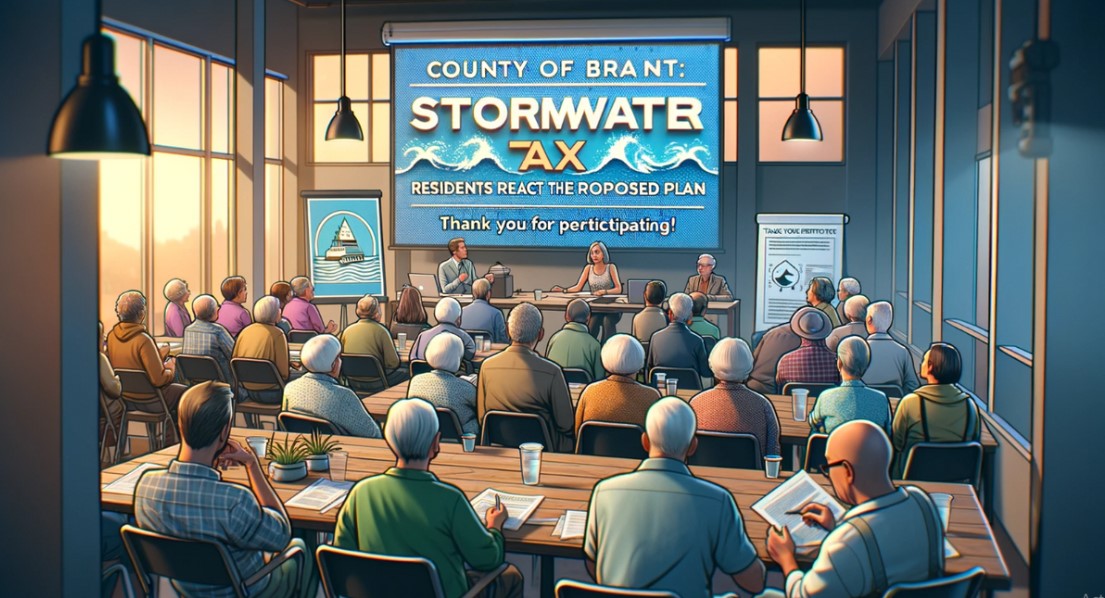Introduction
The County of Brant is considering implementing a stormwater tax to maintain crucial infrastructure that safeguards against flooding and water-quality issues. This proposal has sparked a range of reactions from residents, with some questioning the concept of being taxed for natural occurrences. Let’s delve into the details of this proposed tax plan and how residents are responding.
Residents’ Reactions
During a public information meeting, county staff explained that the stormwater tax aims to support infrastructure like drains, ditches, and stormwater ponds. However, not all residents are on board with the idea. One local, Rob, expressed skepticism on the EngageBrant online forum, humorously asking, “What’s next, am I going to be taxed to fart?”
Proposed Plan Details
If accepted by the council, the stormwater tax would take effect in 2025. Homeowners in specified areas would face a minimum monthly fee of $12, while industrial, commercial, institutional, and multi-residential buildings would pay over $21 monthly. Agricultural lands, covered under provincial regulations, would be exempt from this tax.
Rob Walton, the county’s general manager of operations, clarified that the current funding through general tax levy is insufficient for maintaining the aging infrastructure adequately. The proposed tax is seen as a more sustainable and equitable solution, especially given new legislation, regulatory demands, and the rise in severe weather incidents.
Resident Concerns
Residents from areas like Burford, St. George, and Scotland expressed frustration, particularly following an 8.7% tax increase. Some feel burdened by constant financial demands, especially compared to neighboring towns like Paris, which faces significant flood risks from the Grand River.
Moving Forward
Despite the backlash, county officials emphasized the importance of gathering resident feedback. Andrea Bazzard, the director of environmental services, assured attendees that their opinions would be shared with councillors ahead of a policy development committee meeting on May 7.
Residents can learn more or share their views at the upcoming public information center on March 25 or through a public survey closing on April 6.
Conclusion
The proposed stormwater tax in the County of Brant has stirred a mix of reactions from residents, highlighting concerns about fairness, financial strain, and the need for infrastructure maintenance. As discussions continue, resident feedback will play a crucial role in shaping the final decision on this tax plan.



